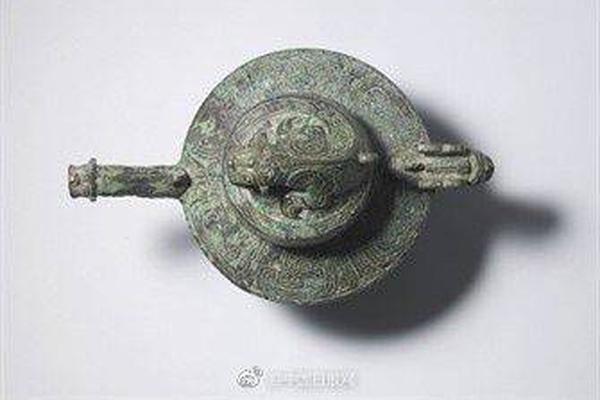Bitcoin's price has been booming in the last two years (with some recent hiccups). This must mean that the cryptocurrency is erotice literaturebecoming ubiquitous at online retailers, right?
Wrong. According to a new Morgan Stanley report, via Bloomberg, only three out of 500 largest online merchants accept Bitcoin.
And it's not growing either. That number is down from five retailers last year.
SEE ALSO: At $200 million, Tezos ICO is already the biggest ever, and it's still going strongThe report doesn't say which three retailers accept Bitcoin, but it's not very hard to guess—one is likely Overstock, which has been strongly advocating Bitcoin since 2014. But the largest online stores—Amazon, Wal-Mart, Apple—still do not accept direct payments with any cryptocurrency.
This sounds counterintuitive. Bitcoin's original promise is that of a decentralized currency and an automated payment system that's fast, secure, and has ridiculously small fees. Its market cap grew from $4 to $40 billion in two years, which implies that retailers are coming on board. But they're not, and they had several good reasons not to.
As pointed out in the Bloombergarticle, the volatility of Bitcoin's price does not suit retailers (or owners), nor do the rising transaction fees. The former is largely a result of all the speculative trading with Bitcoin, and the latter are caused by the limitations of Bitcoin's blockchain, which can currently only process a low number of transactions, roughly 2-3 per second. Since miners (users who provide the computing power for the network) can choose which transactions to process, transactions with a higher cost now have a much better chance to go through.
This issue has turned into a raging debate that may be solved on August 1, when a big part of the Bitcoin community will attempt to adopt the proposed SegWit2x upgrade, which increases the size of blockchain blocks (from 1MB to 2MB) and increases the volume of transactions per block.
Ideally, this should make the Bitcoin payment network faster while also lowering the transaction fees. But not everyone is on board, and a failed adoption could result in a so called hard fork, which would split Bitcoin into two separate cryptocoins.
This is important, as it probably gives retailers (investors, too, but that's another matter) pause before they decide to adopt Bitcoin. Just look at this notice from the Bitcoin foundation, warning that all retailers should stop accepting Bitcoin payments a day or two before August 1 due to the possible disappearance of Bitcoin and the likelihood of "significant price fluctuations."
This Tweet is currently unavailable. It might be loading or has been removed.
Other cryptocurrencies, such as Litecoin, are poised to take over in case Bitcoin fails. Litecoin has notably already adopted the similar SegWit upgrade and has no issues with scalability or rising transaction fees, but it's less used than Bitcoin and even fewer online retailers accept it.
On the flip side, if SegWit2X adoption goes as planned and Bitcoin emerges faster and more future-proof, it could be an incentive for retailers to finally give the green light to Bitcoin payments.
Disclosure: The author of this text owns, or has recently owned, a number of cryptocurrencies, including BTC, LTC and ETH.
Topics Bitcoin
(Editor: {typename type="name"/})
 Obama photographer Pete Souza on Trump: 'We failed our children'
Obama photographer Pete Souza on Trump: 'We failed our children'
 NYT Connections hints and answers for March 8: Tips to solve 'Connections' #636.
NYT Connections hints and answers for March 8: Tips to solve 'Connections' #636.
 Scotland vs. Wales 2025 livestream: Watch Six Nations for free
Scotland vs. Wales 2025 livestream: Watch Six Nations for free
 NYT mini crossword answers for March 10, 2025
NYT mini crossword answers for March 10, 2025
 Meta says some AGI systems are too risky to release
Meta says some AGI systems are too risky to release
Wordle today: The answer and hints for March 10, 2025
 Can't get enough of Wordle? Try Mashable's free version now O
...[Details]
Can't get enough of Wordle? Try Mashable's free version now O
...[Details]
Wordle today: The answer and hints for March 9, 2025
 Can't get enough of Wordle? Try Mashable's free version now O
...[Details]
Can't get enough of Wordle? Try Mashable's free version now O
...[Details]
Best earbuds deal: Save 33% on the Anker Sleep A20 earbuds
 SAVE $50:Get the Soundcore by Anker Sleep A20 noise-masking earbuds for just $99.99 in the Best Buy
...[Details]
SAVE $50:Get the Soundcore by Anker Sleep A20 noise-masking earbuds for just $99.99 in the Best Buy
...[Details]
How to quit social media: This Gen Z
 When I called Gabriela Nguyen, the 23-year-old founder of APPstinent, she picked up on her Cat S22 f
...[Details]
When I called Gabriela Nguyen, the 23-year-old founder of APPstinent, she picked up on her Cat S22 f
...[Details]
EV sales up 30 percent this year despite Tesla woes
 Electric vehicles (EVs) have had a weird year so far. Thanks to Elon Musk, Tesla fell from grace. As
...[Details]
Electric vehicles (EVs) have had a weird year so far. Thanks to Elon Musk, Tesla fell from grace. As
...[Details]
NYT Connections hints and answers for March 12: Tips to solve 'Connections' #640.
 Connectionsis the one of the most popular New York Times word games that's captured the public's att
...[Details]
Connectionsis the one of the most popular New York Times word games that's captured the public's att
...[Details]
'The Last of Us' Season 2 trailer: Hidden details you may have missed
 The Last of UsSeason 2 trailer has dropped, and you know what that means, don't you? It's time to ta
...[Details]
The Last of UsSeason 2 trailer has dropped, and you know what that means, don't you? It's time to ta
...[Details]
Best Presidents' Day deal: Save $44 on Fitbit Charge 6
 SAVE $44:As of Feb. 17, the Fitbit Charge 6 is on sale for $115.95 at Amazon. That's 28% off its lis
...[Details]
SAVE $44:As of Feb. 17, the Fitbit Charge 6 is on sale for $115.95 at Amazon. That's 28% off its lis
...[Details]
Lille vs. Dortmund 2025 livestream: Watch Champions League for free
 TL;DR:Live stream Lille vs. Dortmund in the Champions League for free on Virgin Media Player. Access
...[Details]
TL;DR:Live stream Lille vs. Dortmund in the Champions League for free on Virgin Media Player. Access
...[Details]
Clean energy projects soared in 2016 as solar and wind got cheaper

Liverpool vs. PSG 2025 livestream: Watch Champions League for free

接受PR>=1、BR>=1,流量相当,内容相关类链接。